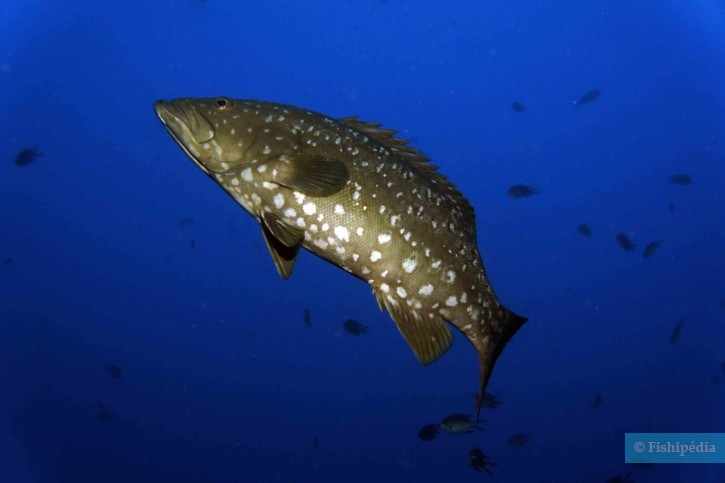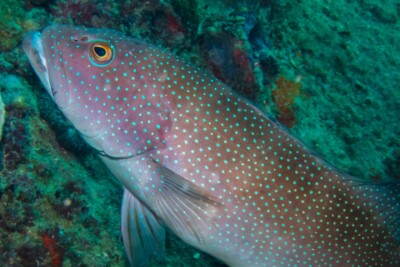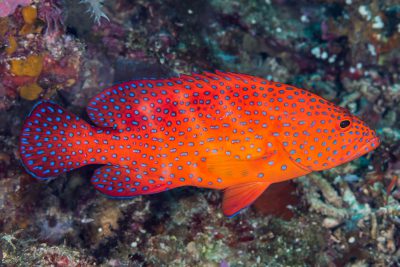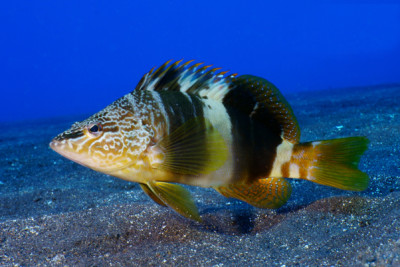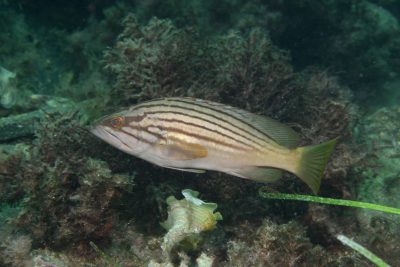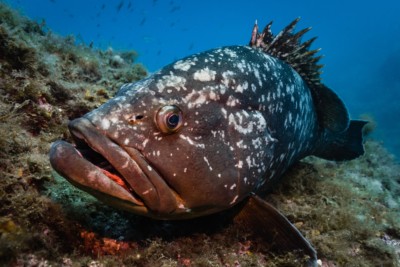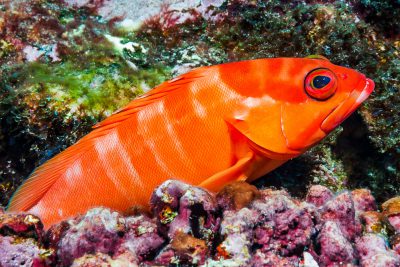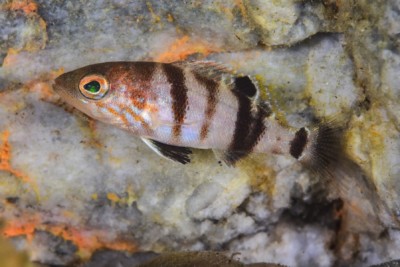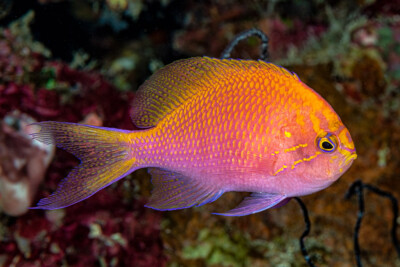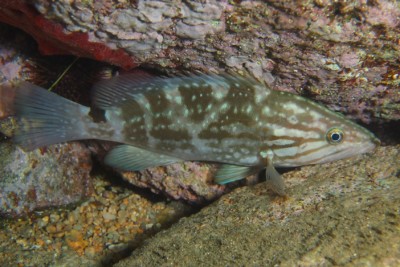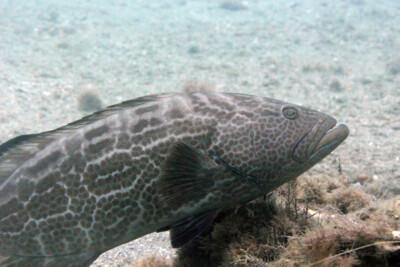island grouper
| Scientific name | Mycteroperca fusca |
|---|---|
| Descriptor | Lowe |
| Year of description | 1838 |
| IUCN category (World) | VU |
| Family | Serranidae |
| Genus | Mycteroperca |
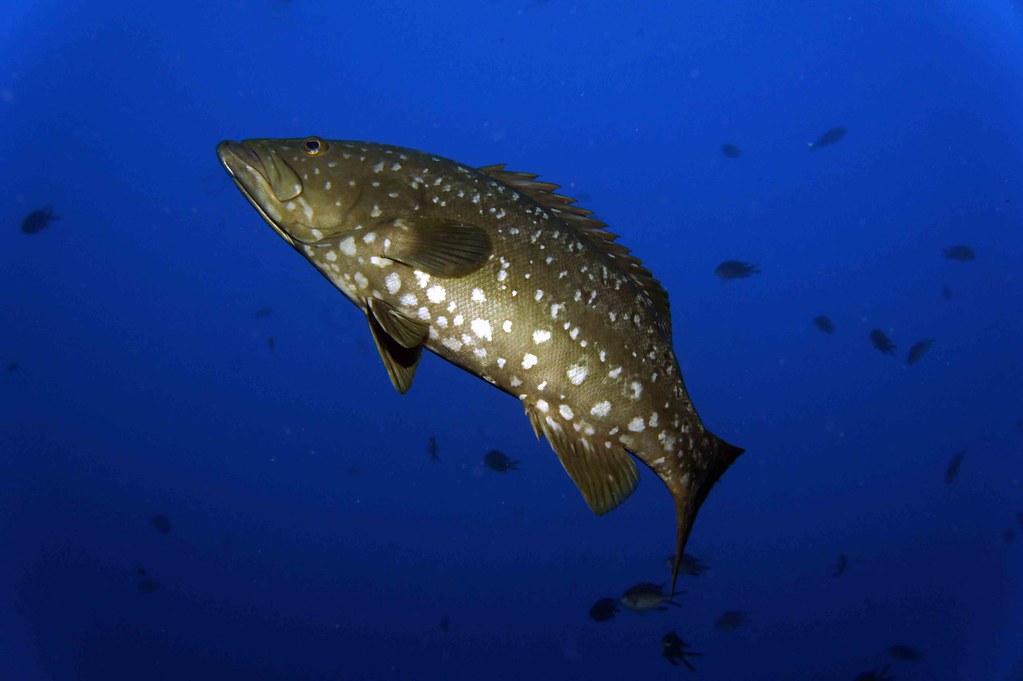

Introduction
Mycteroperca fusca, commonly known as island grouper, is a salt water fish from the Temperate Eastern Atlantic Ocean.
This sheet is currently being prepared. The texts currently proposed come from our data model or are being drafted. To request priority for this content, you can write to us HERE.
Who is it?
Morphology
-
Average size70 cm
-
Maximum size80 cm
-
Longevity20 year
-
Mimicrystone
-
Patternponctuations
-
Average size70 cm
-
Maximum size80 cm
-
Longevity20 year
-
Mimicrystone
-
Patternponctuations
How to recognize This fish ?
The island grouper measures around 70 cm. The dominant males can however reach 80 cm. This fish is bicolore with a predominantly argent and marron body. The also has argent ponctuations.
Sexual dimorphism
The adult male is bigger than the female.
Behaviour & Life cycle
-
dietcarnivorous
-
Sociabilitysolitary
-
territorialYes
-
Way of livingdiurnal
The island grouper is a fish solitary naturally found at mid-depth and near the bottom. This species is carnivorous .
This species is territorial and does not appreciate the presence of intruders nearby, especially animals with similar behavior. It can also be virulent toward conspecifics. However, the island grouper has little concern for non-territorial animals. In a constant quest for dominance, the dominant males of this species cannot stand each other. The battle between two individuals can be intense and violent. It will result in the submission and sometimes even death of one of the protagonists.
Reproduction
-
Reproductionovipare qui pond en eau libre
-
Hermaphroditeprotogynous
The island grouper is a fish ovipare qui pond en eau libre. always born female. Growing up, individuals will change sex to become male, this is called successive hermaphroditism of the protogynous type.
Harmless species
This species does not represent any particular threats to humans when encountered in its natural environment.
Origin and distribution
Conservation status of populations (IUCN)
What is its habitat?
Natural environment characteristics
-
Temperature10 - 26 °C
-
Depth1 - 200 m
-
FlowMedium and Slow
Biotope presentation
The island grouper is most often found at a depth between 1m and 200m. However, it is not impossible to find this species at other depths.
To go further
Sources & Contributions
Participation & Validation
The Fishipedia team and specialist contributors are committed to providing high-quality content. However, although the information comes from scientific sources or testimonials from specialists, the cards may contain inaccuracies.

Benoit Chartrer

Aurélien Calas
Translation
Translation done with the valuable contribution of our translators, who make this information available to a wider audience. We sincerely thank them for their commitment.
Bibliographic references
Age estimation and growth pattern of the island grouper, Mycteroperca fusca (Serranidae) in an island population on the northwest coast of Africa - Rocío Bustos - Ángel Luque - José G. Pajuelo - Scientia Marina - 2009.
First record of the Atlantic island grouper Mycteroperca fusca in the Mediterranean Sea - Phillip Heemstra - Andrey Aronov - Menachem Goren - Marine Biological Association of the United Kingdom - 2010.
Scientific partners
Species of the same family
Same genus
